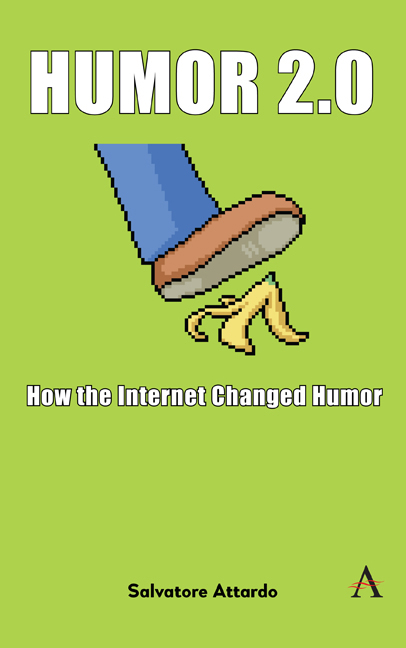Summary
This book grew on me. I started out with the observation that classical humor theory, in which I have played a small but not insignificant role, was still relevant in analyzing the new humor on the internet. The occasion was a request to participate to a conference held in St. Petersburg in 2019. The presentation developed into a paper. I was originally interested only in memes, but I soon realized that really interesting comedic innovations were to be found in the videos, the satirical news and even in the cryptocurrency space. I also became interested in the mechanisms of virality and in what made memes “cool” mostly as a result of a collaboration with Anthony Dion Mitzel. Then in 2020, I had the opportunity to teach a course for the University of Shanghai, in which I was able to explore these topics more in detail. Because I wanted to give the students a good idea of what all was happening on the internet, the class was quite broad and ranged widely. This is directly reflected in this book. Also around that time, I became aware of disturbing trends that connected trolling and the use of humor by the alt-right to disseminate its fascist propaganda. All of this eventually led me to write this book. Thus, the focus had shifted from a straight application of humor theory to internet humor to a more “cultural” approach, of trying to map some of the forms of humor on the internet and what had happened that changed the “ethos” of the internet itself and humor with it. Before proceeding with the task at hand, a few concerns need to be discussed.
US Centrism
The coverage of this book is clearly US-centric. This is due largely to the fact that this is where I happen to be located. In some respects, this is not a problem, because the United States have been on the forefront of the developments of new media. However, especially in my discussion of the alt-right use of humor, the reader should keep in mind that the situation in other countries may be different (and I briefly address this in the text). I welcome discussion and contributions showing how the situation in other countries is different or similar to the United States, along the lines of Denisova (2019) and Gal (2019), for example. More on that below.
- Type
- Chapter
- Information
- Humor 2.0How the Internet Changed Humor, pp. 1 - 6Publisher: Anthem PressPrint publication year: 2023



